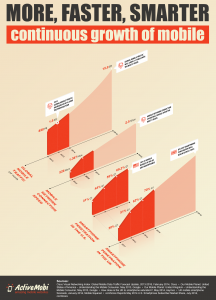In Spike Jonze’s latest gift to the world, Her, he presents us with a protagonist who has feelings for his operating system, which happens to be powered by Artificial Intelligence. Of course, having the husky voice of Scarlett Johansson has a lot to do with it. But the point is, through movies like Her and Duncan Jones’ Moon, where an astronaut shares a lunar station with a robot voiced by the supremely versatile Kevin Spacey, the general population is being eased into the idea of symbiotic human-AI relationships.
Now, being an astronaut might not be possible for most of us and it is highly unlikely that Scarlett Johansson will talk to each one of us one on one. But, the idea of an AI making our life easier is not a notion that is hard to digest, especially if you think of their uses today, or say, how Google is heavily investing in AI/robotics companies.
One of the most potentially path-breaking ventures in this field that has been in the news recently is a PFM (personal financial management) related upcoming start-up based in San Francisco called Wallet.AI which, according to founder and CEO, Omar Green, “builds machines to help consumers make smarter decisions about their money, especially when they’re out spending it”.
The idea behind wallet.AI is pretty simple. As we move around in this in this heavily connected world, all the data about where we go, what we eat and where we shop, act as breadcrumbs we leave behind, and eventually, as we fill in more details through Smartphone check-ins and everyday updates such as tweets, a pattern of our spending emerges. While harbingers of privacy might find it alarming, there is another way to look at all of this, which is exactly what Omar Green did. He sees the tapping and analysis of this data as “key to a smarter way to manage finances than a spreadsheet or piece of paper”.
It’s not as if wallet.AI is the first PFM application or software in the market; there are many others such as Mint, QuickBook and Turbo Tax out there. But, according to Green, these tools are mainly “concentrated on trying to figure out what’s going on with the taxes. There’s a whole decision-making process that goes on there. But the vast majority of our time is spent away from that kind of decision-making”. In a way, he is right. The common person or consumer does not always think about his taxes. Instead, he makes a thousand little decisions every day, some of which are related to spending his money.
What wallet.AI promises to be is a watchdog to monitor, and advice on, that kind of small scale decision-making, which eventually tallies up to a lot of money wasted (or saved) for that person. According to Green, the app uses what he calls “contextual awareness” and a technology called “Quantified self”. Let’s try to break through the jargon for the curious readers.
“Contextual Awareness”, says Green in a response to my email, “is the idea that you can build ‘context’ (circumstances during the transaction) into a piece of software… like mobile search, where the search software, because it has senses your GPS location from your phone sensors, filters the results to only those within walking distance of you”. Using the same mantra, wallet.AI looks beyond the simple transaction info that the subscriber provides so that the insight gained (or delivered) is more relevant to the particular user based on his spending or saving pattern.
To understand “Quantified self”, we need to first resign to the fact that the human brain, at most times, is not wired to always make the best decisions. PFM also involves a lot of behavioral analysis and how or when that impacts our spending and our ability, or the lack of it, to make sound financial decisions. According to Green, “Quantified self” helps by coaching us to make “better decisions”. Green says in an interview with NPR, “what we do is, by grabbing the information around you when you’re making those decisions, looking at the context in which those decisions are made, we can help coach you in the same way that the Quantified Self folks grab data around them if they’re a runner and they want to improve their running performance or what have you, and then use that information to coach that person to be a better runner. We do the exact same thing with your finances”.
The main question that needs to be asked however, is, is AI really the best way forward for PFM, and that too over human financial experts? Green makes his point saying how the idea is not to replace human financial managers per se. He does add, “Most people, however, don’t have access to the kinds of financial advice that might make a material difference in their lives. By advice here, I mean meaningful feedback on behaviors that can affect how financially successful or unsuccessful they might become. Do we spend too much, and save too little? Are we saving too much, and missing out on some great opportunities? Can we really afford to catch that cab to avoid standing in the rain? How close are we really to being able to afford a bigger apartment?”
The takeaway in knowing that apps like wallet.AI entering the PFM domain is that we cannot be always on the back foot, second guessing every innovation, fearing for our privacy, especially when it offers to make so much easier. Wallet.AI is not so much “big brother” telling us not to touch our own money but more like that inner voice of reason we often ignore before succumbing to the drug of consumerism.
Preetam Kaushik is a freelance journalist based in India. He writes for The Huffington Post, The Street and Business Insider India.
(601)
Report Post







